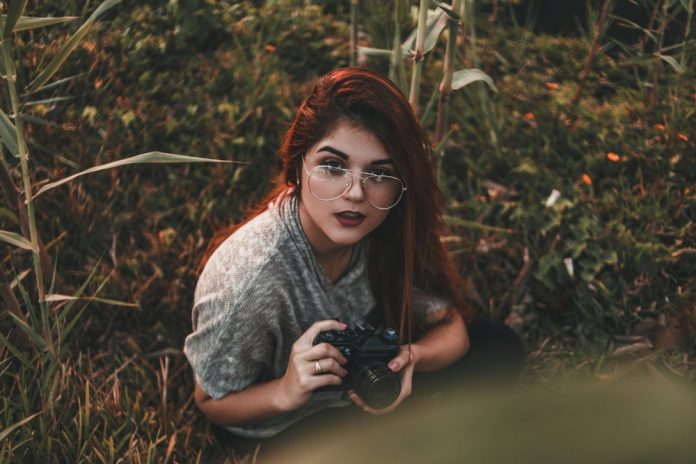Starting out as a new photographer can be both exciting and overwhelming. There’s so much to learn, so many talented people to compare yourself to, and often, a sense that you’re not “good enough” yet. Sound familiar?
If you’ve ever hesitated to post a photo, second-guessed your settings, or felt intimidated by gear you don’t own—know that you’re not alone. Every confident photographer you admire today once stood exactly where you are now: unsure, learning, and questioning whether they could do this.
This article is here to change that. I’ll walk you through practical, encouraging steps that will help you build confidence as a new photographer. Whether you’re just picking up a camera for the first time or you’ve been shooting for a few months, these tips will help you believe in your creative voice.
Table of Contents
- Start with What You Have
- Learn the Basics—But Don’t Wait to Shoot
- Create a Safe Space to Practice
- Seek Out Encouragement, Not Just Critique
- Shoot Often, Share Selectively
- Print Your Work and See It Come Alive
- Celebrate Progress, Not Perfection
- Try New Challenges to Push Your Growth
- Keep a Photography Journal
- Trust the Process: Confidence Grows with Experience
Start with What You Have
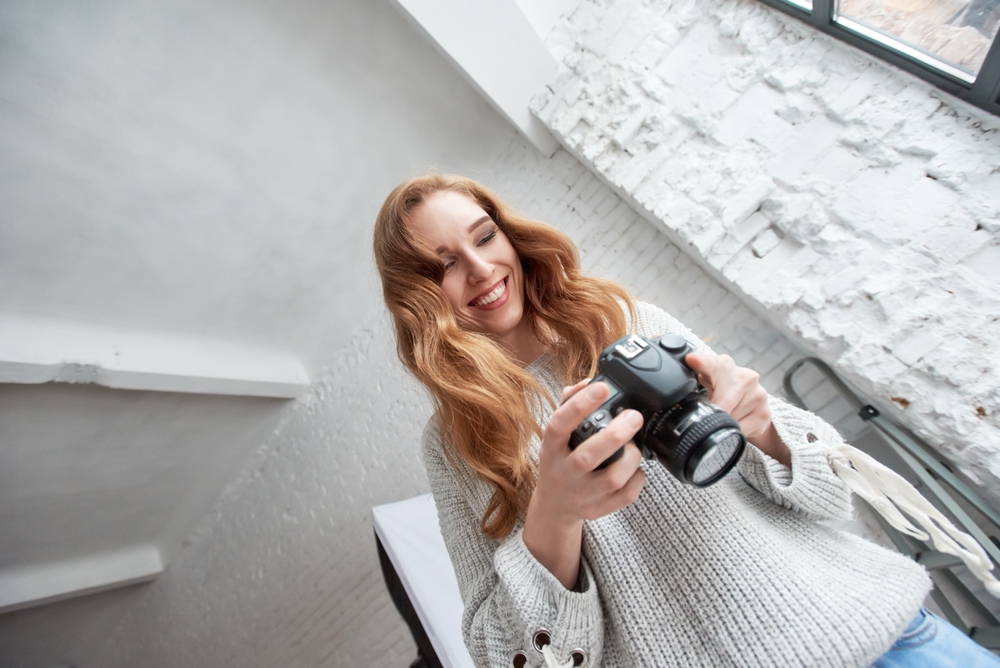
Photo by Denys Kurbatov via Shutterstock
One of the biggest confidence-killers for a new photographer is the idea that you need top-of-the-line gear to create good work. That simply isn’t true.
Some of the most powerful images have been captured with basic DSLRs, entry-level mirrorless cameras, or even smartphones. What matters more than the tool is how you use it. Learn to get the best out of what you already own.
Mastering composition, light, and timing with simple gear will give you the foundation you need to grow. And the moment you realize you can create something beautiful without the most expensive equipment—that’s when confidence starts to take root.
So don’t wait to “upgrade” before you start shooting seriously. Start today with what you’ve got. Your creativity is more important than your camera.
Learn the Basics—But Don’t Wait to Shoot
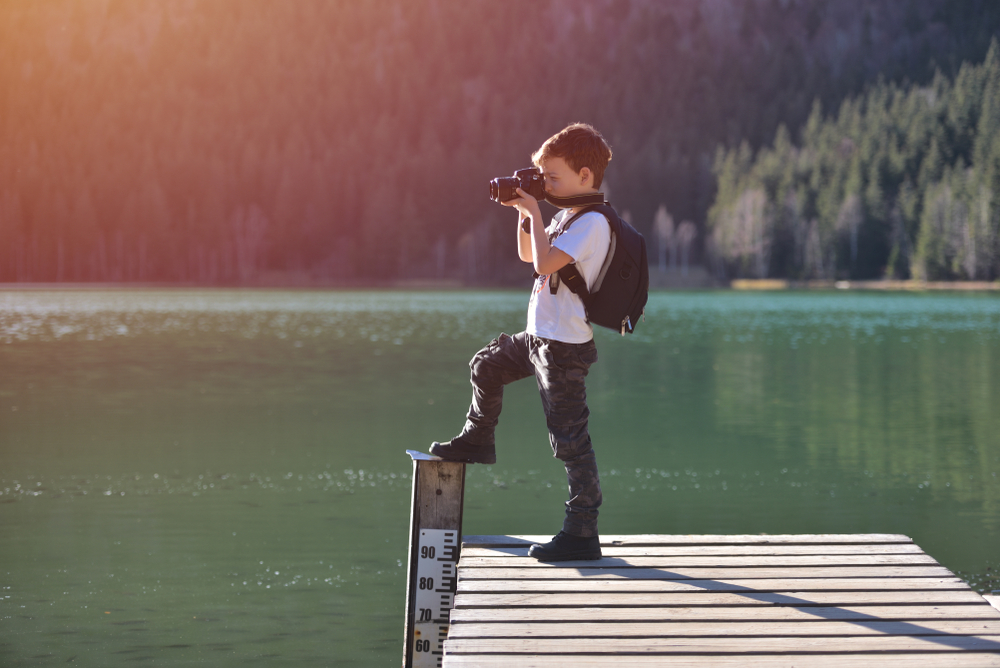
Photo by Daniel Chetroni via Shutterstock
As a new photographer, it’s important to learn the fundamentals—things like aperture, shutter speed, ISO, and how they work together. These basics are your toolkit for making intentional, creative choices.
But here’s the catch: you don’t need to understand every technical detail before you start taking pictures. In fact, the best way to learn is to experiment.
Take a few online tutorials, read your camera manual, and then go outside and shoot. Trial and error is a powerful teacher. You’ll quickly discover what works and what doesn’t—far faster than if you just watch videos or read articles.
Confidence comes from action. Don’t just study photography. Live it, even if your early shots aren’t perfect.
Create a Safe Space to Practice
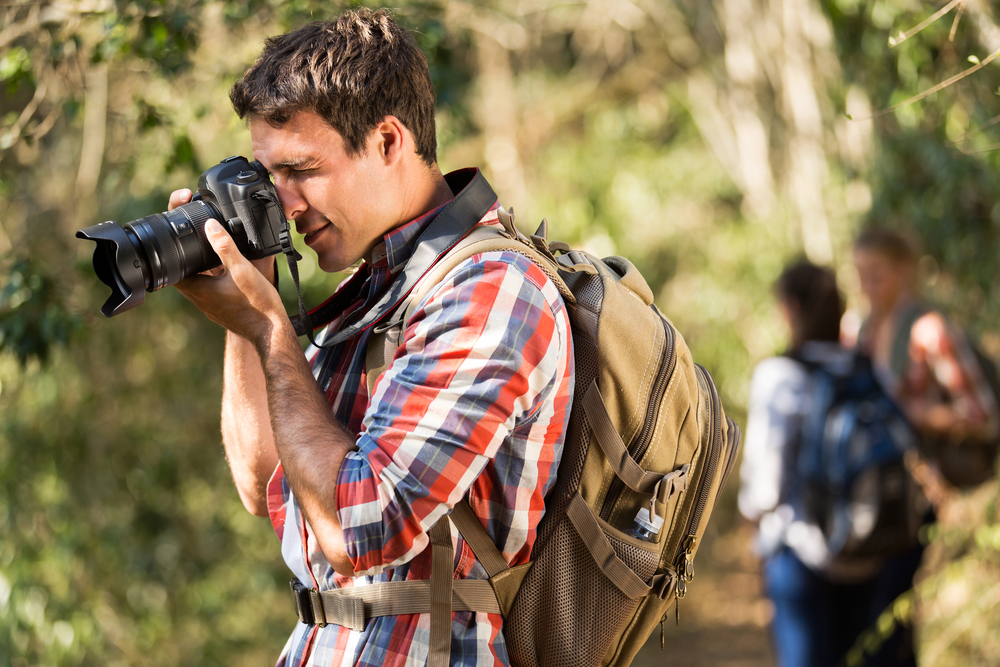
Photo by michaeljung via Shutterstock
When you’re a new photographer, sharing your work can feel risky. That’s why it’s important to create a private, safe space where you can shoot freely without fear of judgment.
That space might be your backyard, your living room, or a quiet park. Start by photographing things you love or that you see every day. The more relaxed you feel while shooting, the more likely you are to try new things.
You might also find a small group of friends or fellow beginners who want to practice together. There’s real value in learning alongside others at the same stage.
Think of this safe space as your creative sandbox. There’s no pressure to be perfect—just the freedom to grow.
Seek Out Encouragement, Not Just Critique
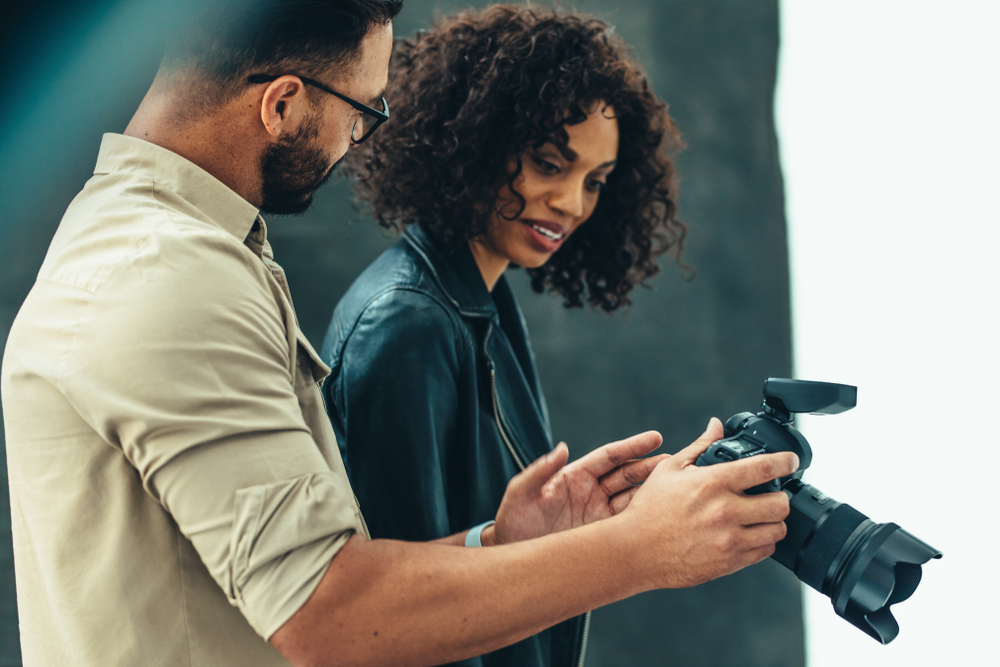
Photo by Jacob Lund via Shutterstock
Honest feedback is valuable, but in the early stages, confidence is fragile. Look for people and communities who offer encouragement along with constructive input.
There are many beginner-friendly groups on Facebook, Reddit, and photography forums where people are kind, supportive, and happy to share what they’ve learned. Avoid places where critique turns into harsh judgment—that won’t help you build confidence.
When someone points out what you did well, it reinforces your strengths. When they offer helpful tips for improvement, you learn. That’s the sweet spot you want to find as a new photographer.
You deserve to grow in an environment that lifts you up, not tears you down!
Shoot Often, Share Selectively
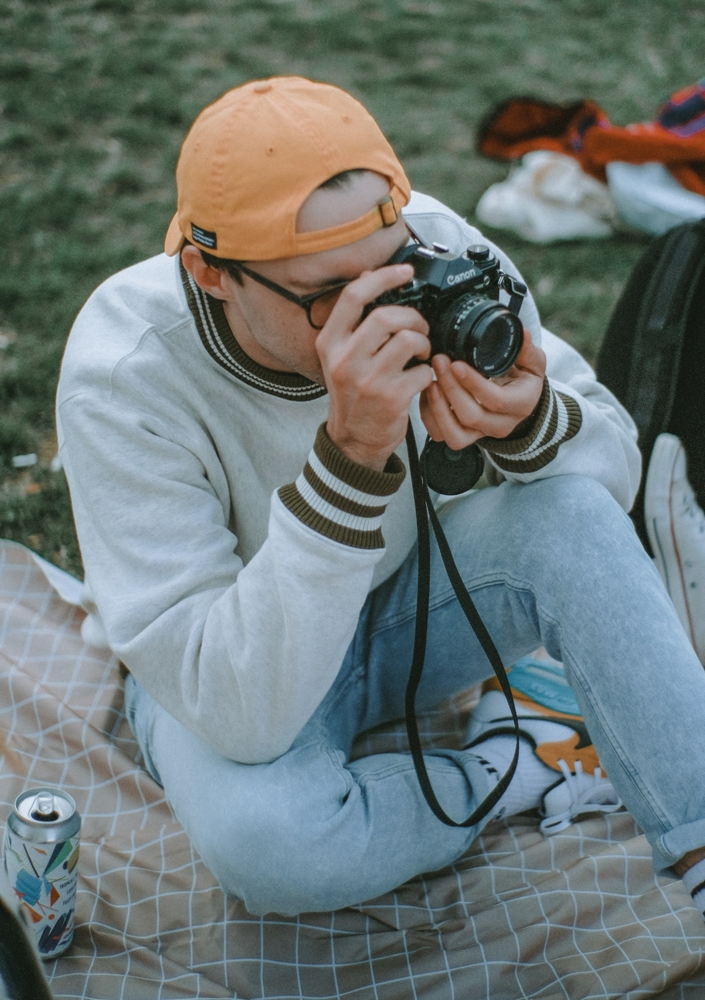
Photo by Marie-Michèle Bouchard on Unsplash (license)
Practice is key to building skill, but you don’t need to share every photo you take. In fact, sharing less—at least in the beginning—can help you stay focused on growth instead of comparison.
When you shoot often, you naturally improve. You start to notice light, color, framing, and timing without overthinking. But when you only share your strongest work, you build a sense of pride in what you present to the world.
This approach helps a new photographer feel in control. You’re curating your own creative journey rather than feeling pressured to keep up with social media expectations.
And when you do share, the positive responses will feel earned—and meaningful.
Print Your Work and See It Come Alive

There’s something powerful about turning a digital image into a physical object. For a new photographer, printing a favorite image can be a confidence booster like no other.
Holding your photo in your hands—or seeing it on your wall—makes your work feel real. It validates your progress in a way that likes and comments never will.

One of the best ways to showcase your images is through metal prints. Companies like Artbeat Studios offer premium metal prints that bring out incredible color, contrast, and detail. They’re durable, modern, and frameless—perfect for displaying your best work with pride.
Artbeat Studios’ metal prints are a top choice for photographers who want to showcase their work with unmatched color, detail, and longevity. They exclusively use ChromaLuxe® brand aluminum, which has been tested to resist fading for over 65 years—more than three times longer than traditional Kodak Silver Halide prints.
Using Epson SureColor printers and Epson inks, Artbeat heat-infuses each image directly into the metal surface, resulting in incredible resolution and color vibrancy that makes your photos truly come to life. See what our own Alex Schult discovered about Artbeat Studios’ printing process in the video below:
What makes Artbeat Studios even more appealing is their flexibility and customer-first approach. They cut every aluminum sheet in-house, so you can order custom sizes up to 40×60 inches without having to crop your image to fit a preset format. Whether you’re printing a bold landscape or a detailed portrait, your work will be presented exactly as you envisioned it!
Try printing one photo that you’re truly proud of. Display it in your home or give it as a gift. You’ll be surprised how much more confident you feel seeing your art come to life in this way.
Celebrate Progress, Not Perfection
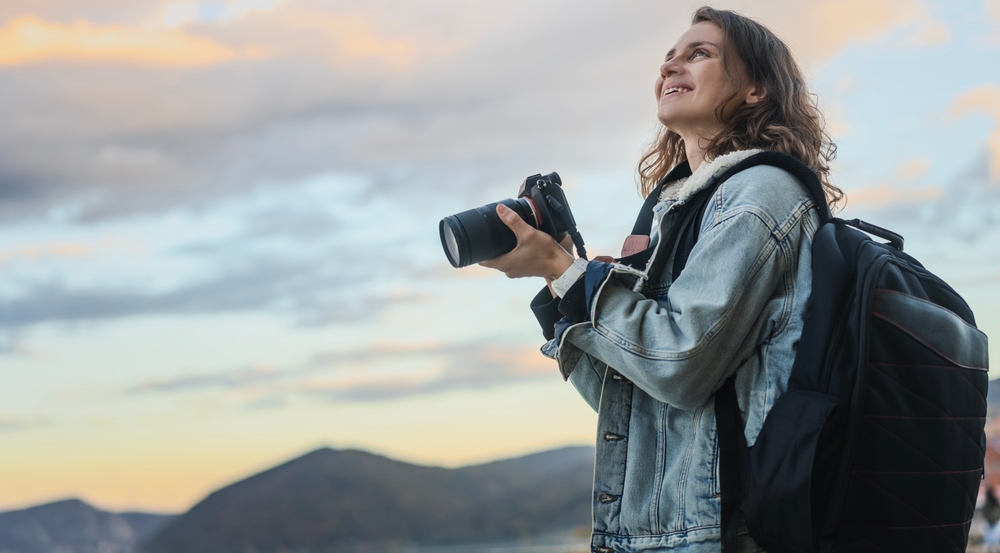
Photo by Olezzo via Shutterstock
Perfection is a myth, especially in photography. Even seasoned professionals take photos they never share. What matters more is that you’re improving.
Look back at photos you took a month ago, or six months ago. Chances are, you’ll spot areas where you’ve improved. That’s something worth celebrating.
As a new photographer, your goal isn’t to be the best—it’s to be better than you were yesterday. That mindset shift will fuel your confidence and make photography more enjoyable.
Progress means you’re learning. And that’s exactly what you should be doing.
Try New Challenges to Push Your Growth
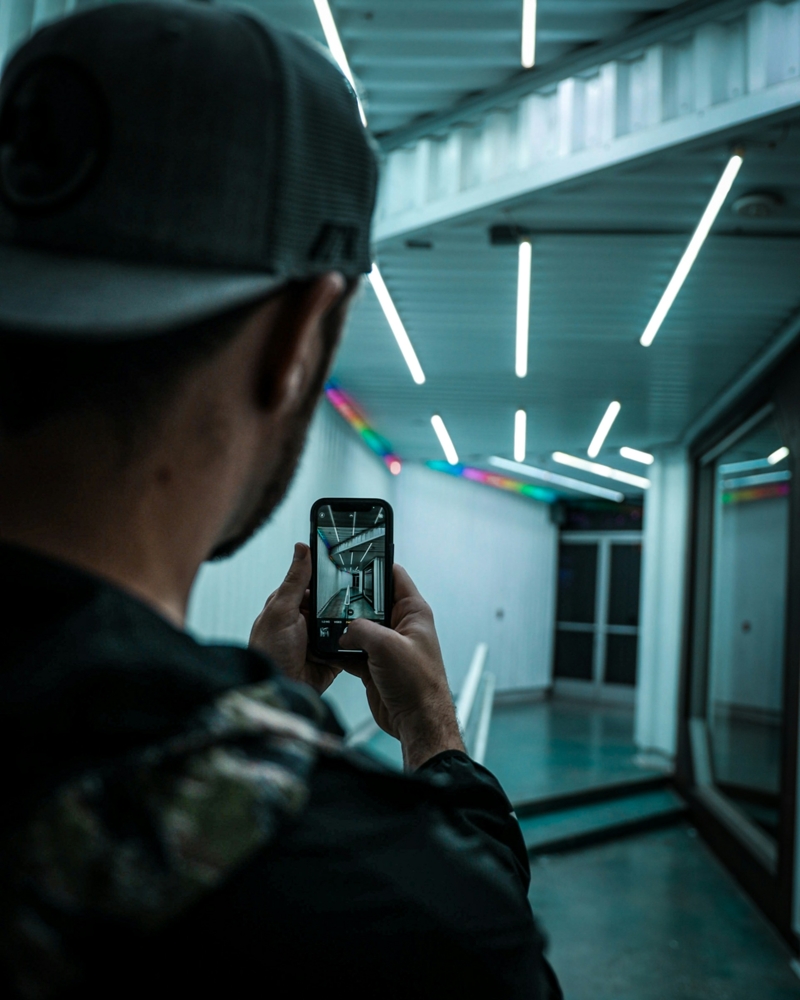
Photo by Daniel Lincoln on Unsplash (license)
Once you’re comfortable with your camera, start pushing yourself with mini-challenges. These are a fun way to grow your confidence and creativity.
Try shooting with just one lens for a week. Do a photo-a-day project. Explore different genres like portrait, street, or macro. The more variety you experience, the more you learn what you love—and what you’re good at.
Each challenge completed builds a layer of confidence. You prove to yourself that you can handle new situations, think on your feet, and solve creative problems.
Over time, these small wins add up in a big way.
Keep a Photography Journal
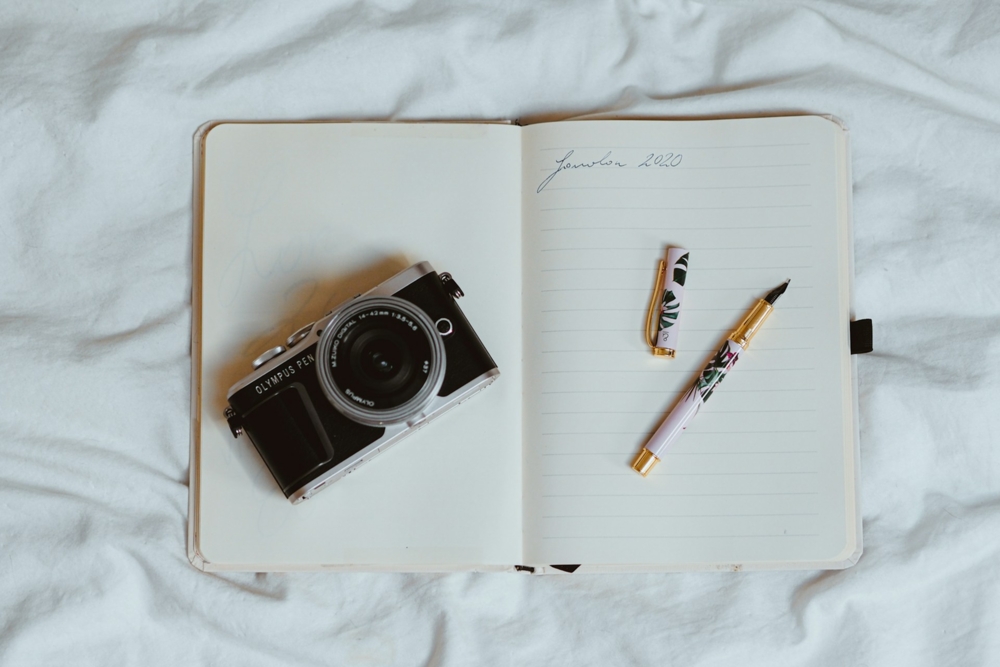
Photo by Laura Chouette on Unsplash (license)
One of the best ways to track your growth is by keeping a photography journal. After each shoot, write a few quick notes: what you photographed, what worked, what didn’t, and what you’d do differently next time.
This simple habit helps you see patterns in your process. It also becomes a written record of your progress and persistence—both key ingredients in building confidence.
You can do this with a physical notebook or a note-taking app. The key is consistency. As a new photographer, your journal becomes your personal coach.
Over time, you’ll be amazed at how far you’ve come.
Trust the Process: Confidence Grows with Experience
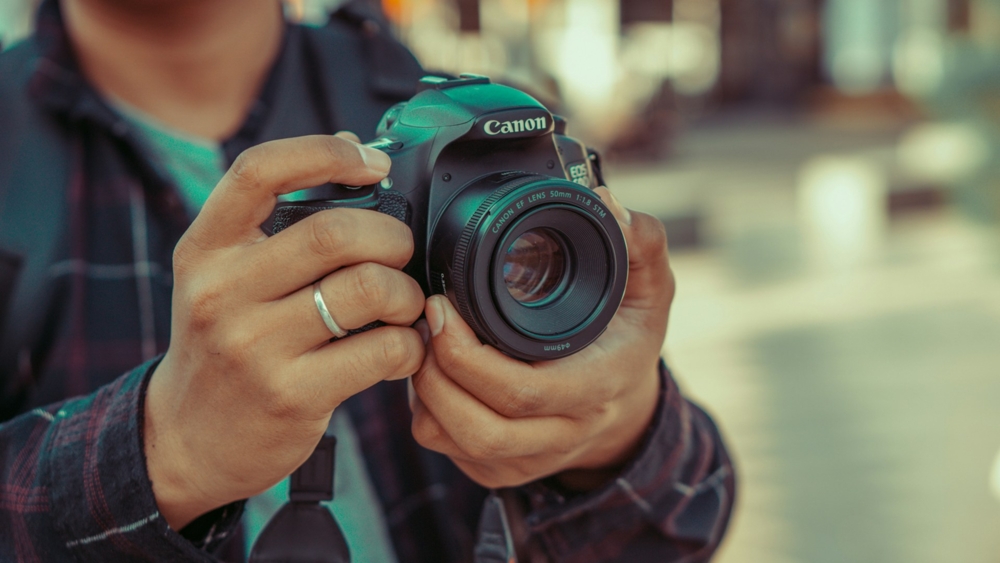
Photo by Redicul Pict on Unsplash (license)
Finally, know this: confidence doesn’t come all at once. It builds slowly, shoot by shoot, mistake by mistake, breakthrough by breakthrough.
As a new photographer, the best thing you can do is keep going. Stay curious. Keep learning. Be kind to yourself. Every time you pick up your camera, you’re building experience—and with it, confidence.
Photography is a journey. Trust that you’re on the right path!
Frequently Asked Questions
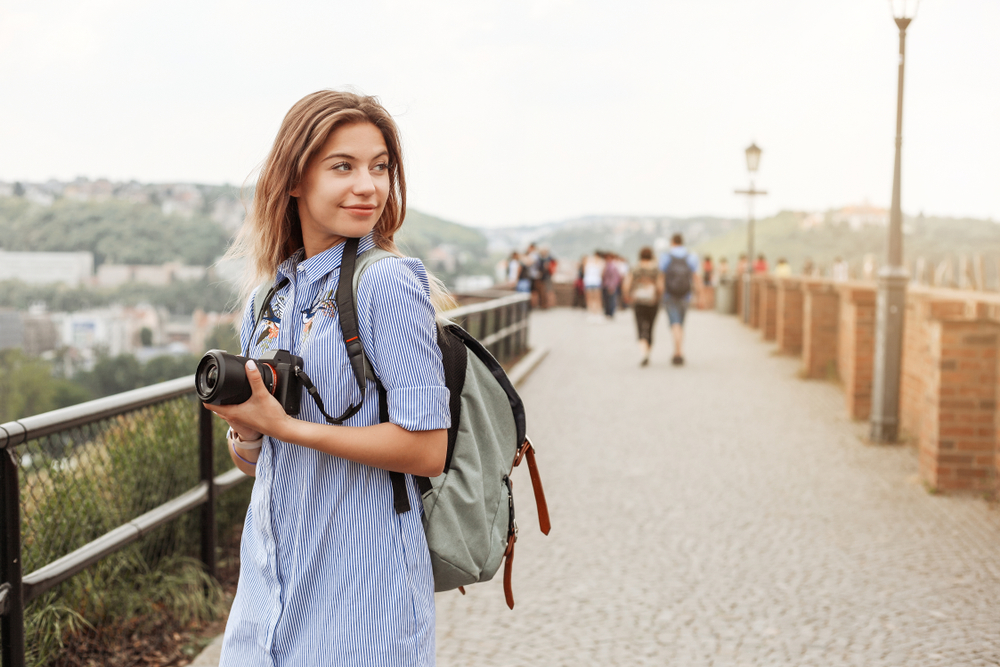
Photo by seniia Vorobeva via Shutterstock
How long does it take to build confidence as a new photographer?
It varies by person, but most photographers start feeling more confident within a few months of consistent practice.
Do I need a fancy camera to feel confident?
No. Use what you have. Learning how to get great results from basic gear is a huge confidence booster.
Are prints really helpful for beginners?
Yes! Printing your work—especially on metal—can make your photos feel real and reinforce your progress.
What’s the best way to handle negative feedback?
Focus on constructive criticism from trusted sources. Avoid toxic online spaces and remember, every photographer grows at their own pace.
Can I build confidence even if I don’t share my work publicly?
Absolutely. Confidence starts internally. Share when you’re ready, but growth happens whether you post or not.
Just so you know, some of the cool stuff we mention comes with affiliate links, meaning we earn a commission if you buy (no extra charge to you!). Plus, we occasionally feature sponsored content, but rest assured, we only shout out products we genuinely stand behind.

